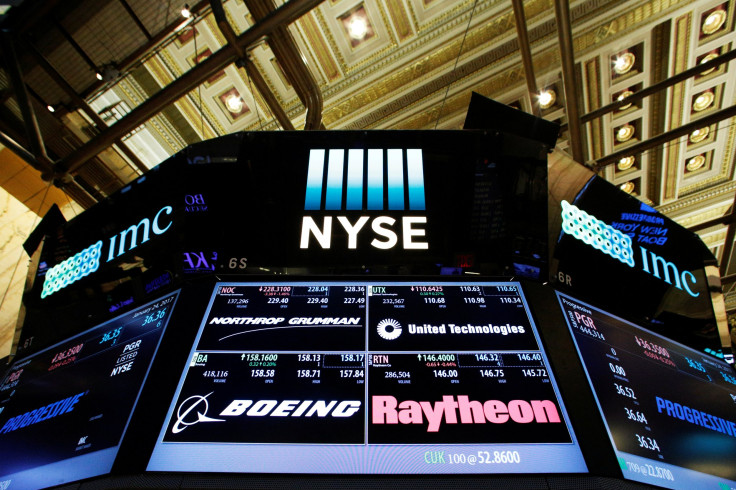Stock Market Reacts To Trump’s Airstrikes On Syrian Base

President Donald Trump sent shockwaves of alarm through the international community—and the stock market—when he declared Thursday night that the U.S. had targeted a Syrian government airfield in a series of Tomahawk missile strikes, provoking accusations that he’d overstepped his authority as president by starting a war with the regime of Syrian President Bashar Assad. But not every reaction to the news was negative.
The Dow Jones Industrial Average (DJI), Nasdaq Composite index (IXIC) and Standard & Poor’s 500 index (GSPC) zigzagged Friday morning, reflecting the rampant uncertainty associated with international conflict. Major defense company share prices, however, followed a different pattern, often shooting above Thursday night’s market close by, in many cases, at least 1.5 percent.
Read: US Bombing Of Syria Used Long-Range Cruise Missiles
Shares of Raytheon Co. (RTN), the maker of the Tomahawk missiles launched on the Syrian military base, saw the largest growth.
Likewise, Northrop Grumman Corp. (NOC) saw 1 percent growth, Lockheed Martin Corp.’s shares (LMT) grew 1.4 percent and General Dynamics Corp. (GD) saw a share price increase of about 1.5 percent as of noon on Friday. The British defense firm BAE Systems plc (BA.L) even saw a 2.8 percent rise.
Read: Launch Was Unauthorized, Members Of Congress Say
The occasion wasn’t the first time the defense industry appeared to profit from new U.S. military action, or at least the prospect of such a move.
In the aftermath of the Sept. 11, 2001 attacks on the World Trade Center in New York, as widespread fear sent general markets into a panicked flux, shares of Raytheon and Northrop Grumman climbed substantially, CNN Money reported at the time. Between the George W. Bush administration’s 2001 invasion of Afghanistan and its 2003 invasion of Iraq, fund managers told the New York Times they planned to hold onto shares of Lockheed, Northrop Grumman, General Dynamics and Raytheon, among others.
“Wall Street tends to fall in and out of love with this sector,” Admiralty Partners Inc. founder and chief executive Jon Kutler, then chairman and CEO of Quakerdeck Investment Partners, told the Times in 2002. “But I expect defense companies to post record profits these next few years.”
© Copyright IBTimes 2025. All rights reserved.




















